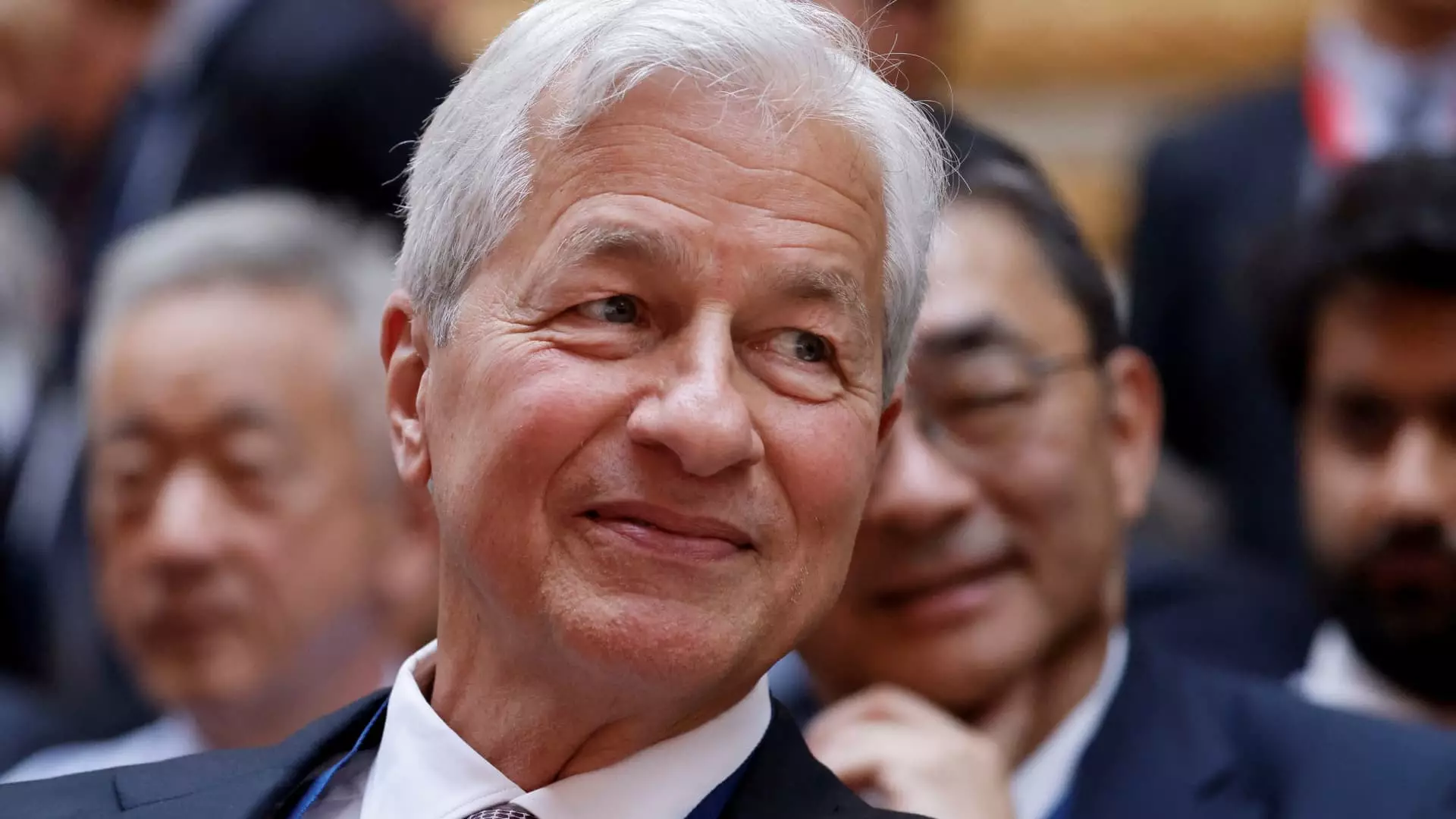The ongoing discussions surrounding tariffs and trade relations in the United States have become a focal point of economic dialogue, especially as various stakeholders express differing opinions on their potential impacts. Recently, Jamie Dimon, CEO of JPMorgan Chase, offered a view that complicates the prevailing narrative on tariffs by suggesting that they could be a necessary and even beneficial tool in protecting American interests. Delving into this perspective reveals the dichotomies that characterize the modern economic landscape.
The Tariff Debate: A Double-Edged Sword
As President Trump prepares to impose tariffs on key trading partners, the economic community finds itself divided. Dimon articulates a belief that while tariffs may create inflationary pressures, they could simultaneously serve national security interests. This admission highlights a critical element of the trade debate: the challenging balance between economic considerations and broader national concerns. The idea that “national security trumps a little bit more inflation” encapsulates a utilitarian perspective, where the urgency of national interests may necessitate short-term economic disturbances.
However, the ambiguity surrounding the implementation of such tariffs raises questions about their effectiveness and the path they carve forward. Many experts warn that a trade war could escalate tensions and damage global economic relationships, creating long-term disadvantages for U.S. businesses. The risk of retaliatory measures from affected countries looms large, potentially undoing any intended benefits of tariffs and throwing global markets into disarray.
Dimon acknowledged the dualistic nature of tariffs, identifying them as both economic tools and weapons that could influence the overall trajectory of the economy. His assertion that “the most important thing is growth” underscores a critical dilemma: how will the U.S. navigate its economic policies to foster sustainable growth while also safeguarding national interests? The potential inflationary effects of tariffs cannot be overlooked, especially in a context where consumers are already grappling with rising prices.
The collective voices of influential CEOs like those of Dimon and David Solomon from Goldman Sachs suggest a nuanced understanding of tariffs as part of a broader strategy for economic rebalancing. Solomon’s remarks indicate a belief in the importance of thoughtful negotiation that takes into account the long-term implications of trade agreements. This perspective leverages the potential of tariffs to catalyze meaningful discussions surrounding trade, ultimately seeking constructive outcomes that bolster U.S. growth.
One crucial aspect of this conversation is the assertion by President Trump that the European Union treats the United States “very, very badly” regarding trade. Such remarks reflect a sentiment commonly felt by many U.S. stakeholders who argue for revisions to existing trade agreements. The significant trade deficit the U.S. has faced, especially with the EU, prompts urgent calls for reexamination and adjustment of trade balances.
However, these calls must be tempered with caution; while pushing for better trade terms may resonate politically, the potential fallout from aggressive tariff strategies could jeopardize the very economic growth they aim to protect. Dimon’s suggestion that tariffs, when wielded correctly, can reshape negotiations, serves as a reminder of the complexities inherent in trade policy formulation.
In light of these discussions, it becomes evident that tariffs are not merely financial instruments; they represent a profound intersection of economic and geopolitical dynamics. The statements from Jamie Dimon and his peers illustrate the evolving landscape where American businesses must adapt to shifting trade policies while remaining committed to sustainable growth.
The framing of tariffs as tools for negotiation rather than mere obstacles will be critical in determining the outcomes of this new economic era. The lessons learned from past policies, coupled with the insights of financial leaders, should inform a more balanced and strategic approach to trade that prioritizes both national interests and global economic health. Thus, as the U.S. navigates its future trade relations, the rhetoric and actions surrounding tariffs will demand careful scrutiny and deliberation.

